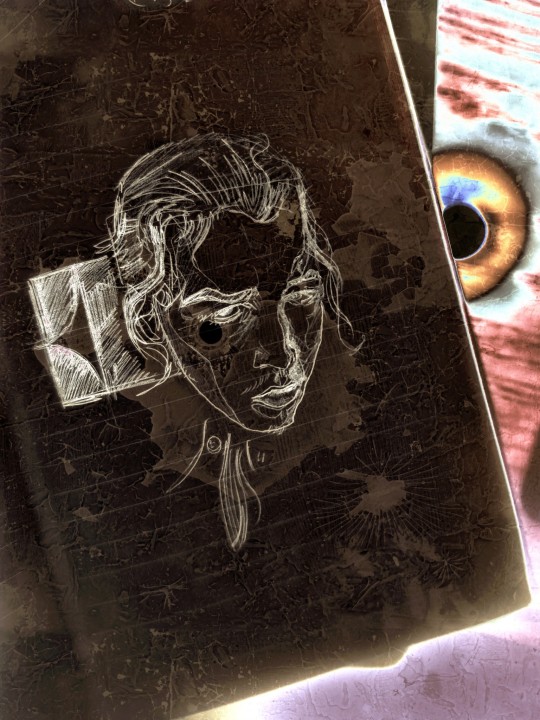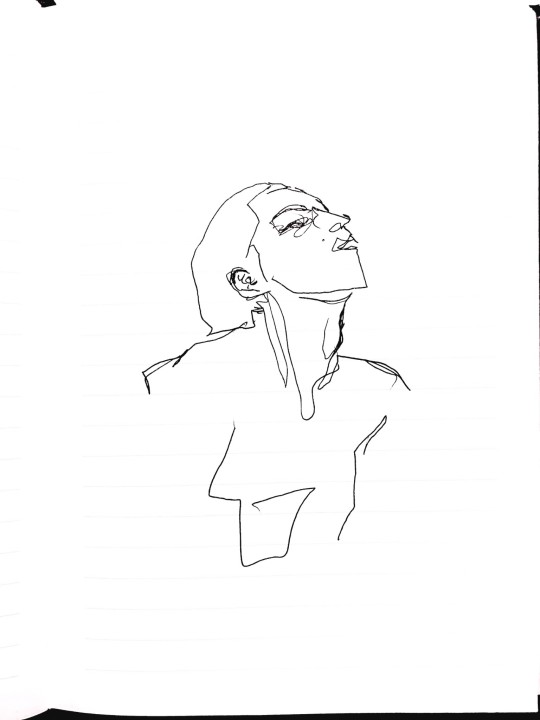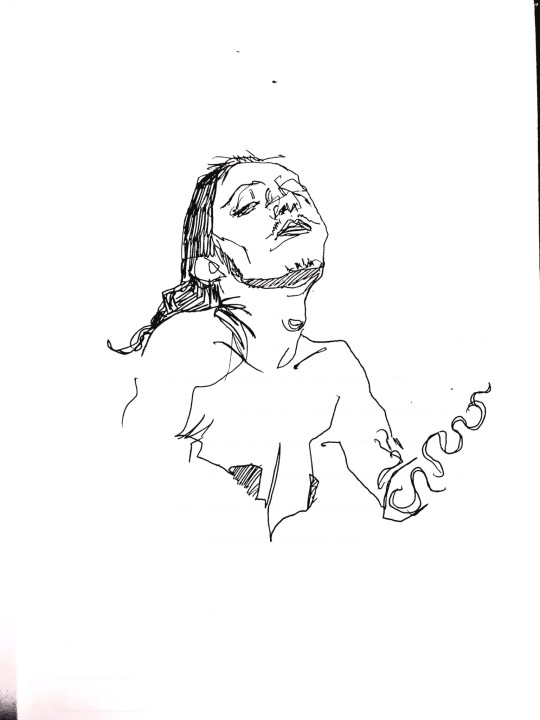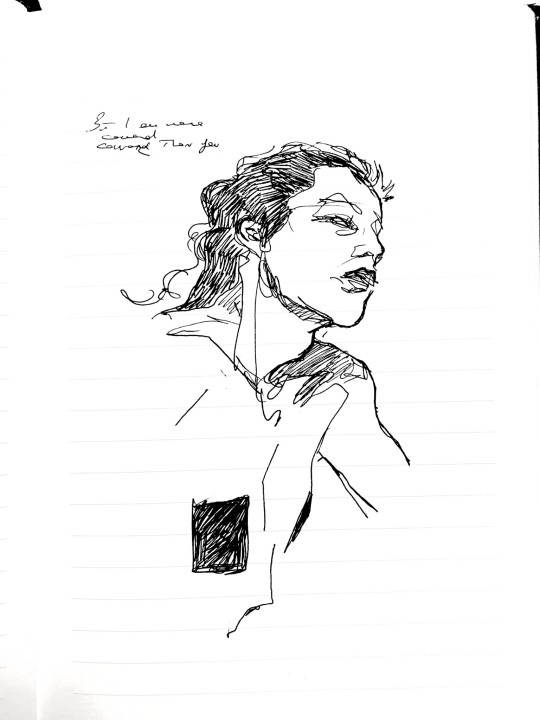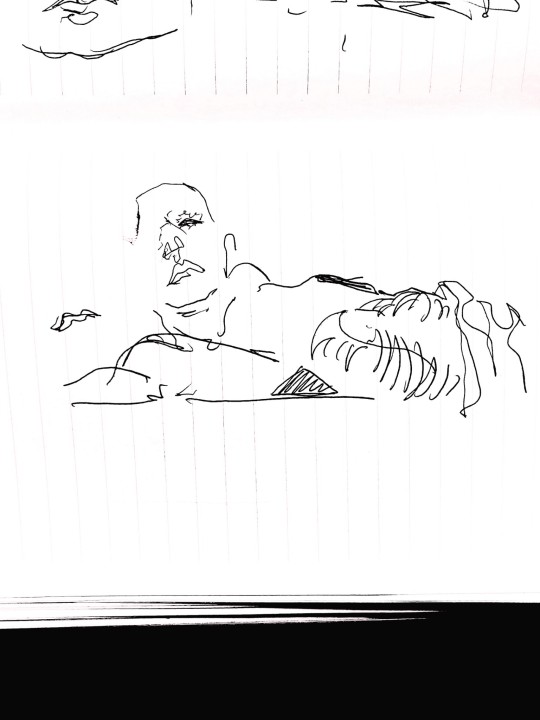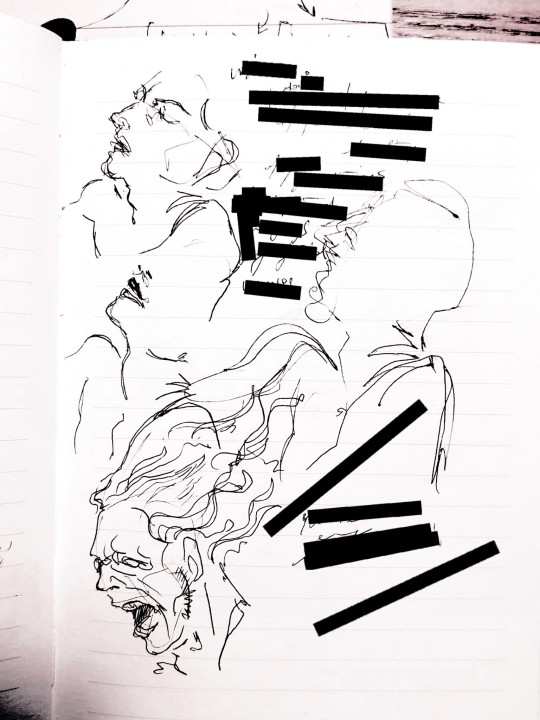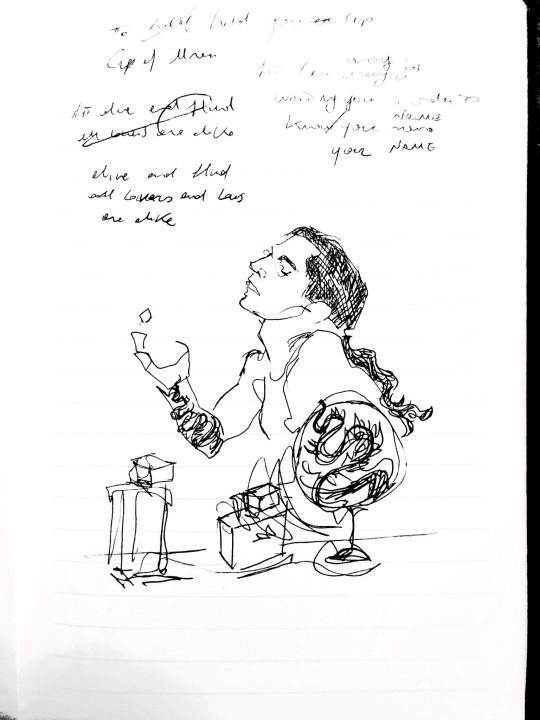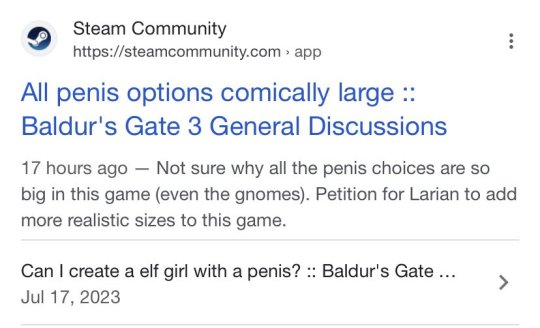Text
Blue Eyed Samurai and Queer Gender
There's a reason so many trans people keep reading trans identity into Mizu.
Because even if she's cis, her gender is still queer.
Lemme back up for a second. Queer identity is deeply intertwined with experiencing sex and gender in ways which are fundamentally non-normative and non-conformative for the societies we live in. It is about being "other" to what society's default is. There are reasons that queer liberation movements have historically often allied with kink communities, with polyamorous circles, and with feminist movements. There's overlap there, in being outside a tightly constrained norm and demanding equality and recognition. And this also means that what queer is, is defined in part by the society it stands in opposition to.
Because for contrast there have been societies, historically, which have been fully accepting of trans people or even had specific social norms and customs around nonbinary gender. The colonizing Spaniards found and recorded interactions (typically violent, sadly) with trans people in what's now Mexico who lived, married, and were recognized in their societies without regard for their genitals. There are entire fields of study around various historical recognition of nonbinary identities. None of these people existed in opposition to the societies they lived in. Heck if we look at sexuality, the ancient Greeks would certainly not have seen men having sex with men as queer (though they would have judged and demeaned the bottom), but some of them certainly pathologized women who had sex with women. In such a society bisexual men would not be queer, while bisexual women would be.
Queer is contextual. Someone who lives in a fully accepting society as a trans person, who never has contact with a culture where that acceptance isn't the norm? I'm not sure I would call them queer. At the very least, there's a definition of queer as the embrace of one's sexual and/or gender non-normativity which such a person might very well not opt into. That person might not feel queer. We might not share that emotional experience.
And where this comes back to Blue Eyed Samurai is that it's possible to be cis and to be marked unavoidably and unalterably queer by one's society. A cis woman living in the US today who feels absolutely cis but cannot, for whatever reason, stand wearing dresses and must wear pants? Might experience some gender non-conforming experiences, but not necessarily be queer. That same woman in 1890s US? Her gender expression would be outright illegal as a form of crossdressing. She would be seen with the same lens as a trans man and their experiences of gender would both be queer, despite one being cis and one being trans. If such a woman, despite being cis and straight and allosexual and alloromantic and all the rest, told me she felt queer? It would not surprise me in the least.
So if you define queer as any kind of experience or internal feeling, as a state of othered existence rather than a specific set of prescriptive definitional boxes that fit our specific societal norms and practices? Mizu is queer. Mizu might or might not be queer if you transplanted her into the 2020s US where I live. But to define her by how she would fit in our society's boxes is fundamentally missing the point of both the queer experience and the story of Blue Eyed Samurai. (And she might not be cis here, he might be a trans man, or they might be nonbinary. It's hard to say ... and this is why queer history scholars step carefully around modern definitions, by the by.)
What we can say is that who Mizu is, in the context of Edo period Japan, is queer. Whether Mizu is genderfluid, or a trans man, or a cis woman who hates having to be undercover, or a cis woman who thrives being undercover, or a cis woman performing drag, or a trans man who thinks of himself as a woman in drag because he lacks context for being transgender? It's all queer gender. There is no framing in which Mizu wouldn't relate to the experience of queer gender.
Mizu doesn't get to experience gender in a normative way. That's both because of who she is at her core, and something that's defined by society without her consent. She is queer, innately born so and structurally made so at the same time, and that's not a contradiction.
353 notes
·
View notes
Text
before the body is punished, it is punishment
I have a body that does nothing but rebel to me, that does nothing but shout at me: "I am you, and it's not you being me!"
I have a body that arranges before me all of its weaponry, that reminds me that my organs aren't mine, that they have a will of their own, deterministic, natural, opposing, stupid, and blind, and ignorant, and hateful will. I, who have a mind that understands, should be immune to all this; and yet the body is like an inquisitor who has fun poking me with needles, drowning me in blood, the same I have spilt in chalices, in barrels, to gradually become something that resembles me more closely. The body won't listen to reason. I treat it, I care for it as an ancestral wound; and he, like a stubborn dying beast, detaches itself from my hands, from my intention, from my attempt to love it. If it really were the beast it is, then it would at least have the courage to abandon me. Instead, as sure as it is human, he grows like a tumour, alive it squirms in my arms, and I am not loving it tenderly anymore, but keeping it still, trying to mitigate its intentions, its functions; trying to allow the terrible clutches to caress, not slash. But this one, he only uses them to scratch me away. I attempt to embrace it newly, and then to sit it down, and to sedate it, to restrict it to the dimensions of anaesthetics, to trick it with pleasure, mortify it with pain - but my touch upon its thriving organ instigates it, my whip upon its writhing frenzies it, and he contorts against me - I end up, despite myself, seducing it.
I must tie it down and oblige it. But in doing so I foment privation, which is mine alone: he wins me over, and I can't do but surrender anew.
The trembling gash is an Orlando whose crimson tears flow now mild, now virulent, to stain my arms, my fingers, to gather on the hairs that were once standing on end, now forcibly quiet; to flatten them, brine whose frost too heavy - but truthfully, honey and milk, bonds of the cosmos, slow eternal pulsation, subdued and all the more vibrant - and equally to crumble my pride. Quivers, he, with the pleasure of being unfurled with such violence, of being obliterated by the hormonal winter that devours him while he pulsates away all of his summers - his cherries, his golden tears, liquid healings of solar wounds that rise again at dusk.
Body, I ask of you, not to be for me what the eagle was for Prometheus: we need not an arrow to free us; we'd be bending the bow each one for the other, and the piercing branch would be for us of constraint; and I, body, have not extinguished the burning in your soul, I who live in its thermal mists, the humid den where life proliferates and crawls.
And this is the daily measure, the monthly, the annual, of the love that I try to impart, like a discipline, to my cursed one, who yet still rebels against me, like Dantesque vermin, which of Dantesque, however, certainly is missing the guile.
[...]
The body beleaguered, or the body martyr
My body won't obey me, and such has been established. But there is something more, perhaps a sort of confession to make: that also I do not obey its command. I have every right to do so, and of this I am certain, because my strength is the same one that perceives it, and therefore the one that allows it to exist beyond the physical, and in me: that which binds us beyond our mutual rejection. Therefore, I have every right to bandage its illnesses, to shrink its virulent buboes. Its diseases affect me, and I resist them. This much is all that is purely human, since the dawn of time. Similarly to how the malignant dream is incubated in the cradle of the clear mind of the newly risen moon; here we are: I have a tortured, battered body. The chest bears more than one wound, more than one repugnant mark, and more than one such scar. Quite surely, if they had been inflicted upon me by old warriors, I'd be proud of them.
But I know well that each of these comes from an attempt at an act of care, and nowhere else than this; equally well, I know that every attempt at such a useless act of care, especially if final, resolutive, decisive, will be rendered more futile than it already is as time passes by me, administering these temporary treatments to my body; treatments that can regrettably no longer keep it upright. The bandage no longer holds. Oils no longer grease it and alcohol no longer dries it. Glue sticks to my skin like its disease, slowly, abruptly discontinues both heart and mind of mine. Red marks of never-been torture adorn my chest like jewels of a saint's crown. But, alas, the martyr remains a mummy: the ligaments endure no more, except by sheer imposed rigidity; if he could, he'd turn over in his grave, strip himself naked of the bandages, the jewels, and then the withered skins, and die once and for all, as he has never been allowed to do. Perhaps, he'll be remembered by the value of his femur, and when that one as well finally crumbles, an animal bone replaces its holiness. So be it. A beast-body, after all, can only be such.
0 notes
Text
why mizu is, in fact, not cis
Everyone is very angry at everyone about how to see or not see Mizu’s identity; being unable to shut up, and having fixated on the show a bit, i’m excited to finally join my first to-the-death-tumblr-discourse-battle.
I'm going to use mostly he/him for Mizu, but please read the premise below. Read the colored strings of text 😭
The main argument for Mizu being a woman is that which has as its basis the fact that cross-dressing is for Mizu an external need: for one, it is a need for protection from patriarchal bonds; secondly, it is a need for independence - Akemi’s story is one of independence as well, of feminine independence, and we have more than one woman pursuing such thing; we could go on with an analysis of brothels as a feminine space, but, alas - and thirdly, it is a need of obligation: Mizu needs to maintain the masculine identity in order to attain the object of his vow.
I find, however, that while the argument stands as perfectly sound (and as canon) it isn’t exhaustive enough of the layered experience of gender in BES.
The trans coding is simply undeniable to me, whether it was intentional or not. I do not mean to say that Mizu is a binary trans man; that would be an approach as reductionist as confirming she is exclusively a woman. However, I find that some behaviours of Mizu’s are coded as dysphoric reactions.
Most of my justifications for this reasoning come from episodes 2, 5 and 8.
In episode 2,
Ringo is vowing to never reveal Mizu’s secret: “I’ll never tell anybody you’re a g-“; and as soon as he’s about to say girl, Mizu is just as ready to slice his throat. Mizu being worried about someone else hearing or witnessing the interaction doesn’t seem completely plausible to me: they’re alone in snowy woods, and, most likely, Mizu wouldn’t have confirmed time and again how readily he’d kill Ringo.
Then comes episode 5,
which is in my opinion the most layered and the most exhaustive in regards to Mizu’s experience of gender, especially regarding his experience of the feminine. First and foremost, it tells the ultimate teaching: that gender isn’t but a performance, just as the gender roles are portrayed through theatre in the episode. As for the dysphoric reaction, it's the whole thing. Mizu is miserable even when we suppose that the marriage could be a relatively happy time. That's another reason why I suppose the puppet theatre tells Mizu's internal sense of self as well (see paragraph 4).
(And, about gender being performative, see how kabuki theatre was born in the Edo period and how, before being banned from acting, women cross-dressed to play male characters, and men cross-dressed to play female characters. See “professional transvestites” trained to be prostitutes, Kagema being trained from a young age to „act" like members of the other sex; see how by the beginning of the 18th century AFAB sex workers would try to figure out a way to set themselves apart from wakashu, creating an entirely new space for female crossdressers in the adult entertainment sphere; see ukiyo-e representations - chigo monogatari and yukiyo-zoshi literature; stories by Ihara Saikaku that are full of "transgender behaviours" and more)
Back to ep 5:
1. Theme of performance
The theme of performance, which also is the one of Mizu performing femininity for Mikio (in function of the well-being of Mizu’s mother), but being at once unable to suppress masculinity as the only space in which Mizu seems to be comfortable: e.g., it’s a little detail, but Mizu’s only good in the kitchen when cutting vegetables, because comfortable with blades, certainly not with cooking; again Mizu having to perform femininity is when he does makeup to “make-up”, to soften Mikio’s spirit, who feels invalidated by Mizu’s masculinity when it starts to interfere with his pride, and such other details; I even thought of the sword as a symbol for “learned” masculinity: the first time this thought occurred was when it was characterized by sensuality in the scene where the spouses spar: “Unsheathe it. Let me see your blade;” and I interpreted it as masculinity being the only space that allows intimacy as well; then comes the time where Mizu learns he does not need a sword to fight, meaning to me that she can embody masculinity without having to prove it to others. And then comes the reforging of the sword’s meteorite to include “impurities”, and the rite that Mizu performs. I assume that “a sword too pure” is the symbol of, again, learned hypermasculinity to appease patriarchal expectations, and is too pure because it’s Mizu rejecting part of himself, trying to exclude all “impurities”, whether they are being half white, or being half woman. Taigen himself is the one to tell Mizu he can fight without a sword (ep 7, but done in ep 3 or 4 and ep 6 already), and then the situation starts to bear sexual tension, which I directly link to the sensual connotation of the sparring cited earlier up. Possibly, this particular situation could also mean acceptance of Mizu's lack of a native "sword".
2. Gender roles
But a more sound consideration is (i would like to hope so) the one about the whole marriage being told through puppets, and the puppets themselves. While they are different characters, first of all we see an inversion of gender in the roles: at first Mizu is the Ronin because he performs a masculine role of protection, an “active” role; then, Mizu’s role is reversed in function of his marriage. We see Mizu surrendering (forcibly, being manipulated) to femininity as soon as his mother guilt-trips him into marrying, and the ronin puppet assumes a submissive pose, long before the role reversal.
3. A note:
it yet does not seem to me like the role reversal is, so to say, complete: even after the reversal, the narrator tells details about the ronin that are actually details about Mizu, e.g. when the two marry, and despite the positions of the puppets match the ones of the spouses, it is said that the ronin's loyalty is no more turned towards his "path of revenge," (Mizu's) "but to his bride" - in the perspective explained below, perhaps Mizu's own femininity. Also, i find Mizu might perceive Mikio as the bride, and himself as the husband - as an argument it can't stand alone, or it would bare no strength, but I will use it in correlation with the other points made, until now and later, to argue that Mizu thinks of himself as a guy.
4. Performance of Mizu's sides, assimilable to when she has the vision of killing his white side, shortly before facing the four fangs or whatever their name was
This, and one more tiny detail, bring me to think that not only do we talk about external roles, but about Mizu’s self-perception. I'm referring to when it is said that “for the first time in many years, the ronin felt the storm rage inside him.” The storm is a symbol belonging to Mizu (literally it occurs in the first 2 minutes of the episode), and it is explicit that it isn’t something that happens for the first time, but rather returns. By this point, the gender roles were reversed, and yet it seems to me like it isn’t anymore about the marriage itself, but rather about Mizu’s hatred for and slaughtering of his own femininity, and, of course, the experience of betrayal; with his family (especially his mother, see below), and with his femininity, which wasn’t enough to keep him comfortable or Mikio on his side. (...betrayal which is also about mizu himself betraying akemi, i'd add. Mizu is justified here, but it's important to note the parallels between the two timelines i guess?)
5. That random ass baby
There is, at a certain point, a situation of peace, which I think is represented when one of the puppets is holding a blue baby (supposedly a little ronin) in its arms. I want to suppose that the baby represents newborn love between Mizu and Mikio, before it all fell apart. But the love itself is a masculine love, as we see that it is based on masculine exchanges (fighting, doing fieldwork, taming horses, riding together, whatever) and, it seems to me, assimilable to homosexuality between samurai, which was widespread (insert something about Taigen here). Also Mikio wanted to marry a bro lmao. Aside from that, on the level of Mizu’s self-perception, it might represent comfortableness, a sort of congruence, or, rather, a compromise, that Mizu is able to live in, between natural masculinity and performed femininity - opening up to show vulnerability, love fragile as a creature that cannot defend itself, innocent, naive, trusting.
6. About Mizu’s mother.
The puppet used for Mizu’s mother before the role reversal is the same that is supposedly used for Mizu after, but I latch onto a detail: the pattern on the puppet’s kimono is the same as the (real life) Mother’s kimono (see for example minute 12:30). I support this by noting the more obvious parallel between the blue worn by Mizu and the blue of the Ronin puppet, but at the same time I'm forced to note that after a certain point the mother has her own puppet. In any case, I see the mother and the feminine puppet wearing the same kimono as being about femininity, and about the mother’s betrayal of her child, rather than about Mizu herself. For one, manipulating him into marrying and abandoning the vow. But also we learn (ep 8) that the woman isn’t Mizu’s mother at all. One could discuss the reliability of Fowler’s statement, but I feel there are more clues regarding the mother’s betrayal: the episode starts with the Ronin, who feels the storm rage inside him at the killing of his lord (Mizu’s actual mother, perhaps) by the hands of a clan whose crest was the Phoenix (which I suppose are the white men, and the curse of whiteness for Mizu). I’ve thought about the four white men dealing guns (Fowler), flesh, opium (and I’m not sure what role “Violet” has in this, but I think they're the opium dealer), and thought that if Mizu’s “mother” was a substitute, the opium she smokes could point to Mizu’s potential father, perhaps even at the surrogate mother keeping contact, and at the surrogate’s betrayal at the same time. But it’s also true I watched the show while stoned, so I would dismiss this.
7. Onryo (note: characteristic in kabuki)
When the birth of the vengeful spirit occurs, I see very well how plausible it is to say that, actually, the rage that Mizu feels is feminine rage, and I agree with that. Mizu’s femininity is his rage, it is heavily related to the mother-daughter relationship, despite the fact that at a certain point the mother has her own puppet. At the same time, however, it is to me the result of the slaughtering of the performed femininity needed to respect the obligation (we remember the wedding was also to ensure the “surrogate” mother safety, especially financial, as well as to keep Mizu bound), just as accepting you’re able to fight with any tool puts an end to the compensatory movement by which you’re trying to prove masculinity to an observer (which, say, Taigen does as well, wanting to prove to Mizu he can beat him - plus, Taigen himself is the one to reassure Mizu on the complete unimportance of it, see how I read the sword symbol a few paragraphs earlier).
In this perspective, the "dye washing away from her kimono" to me means two things: that being what he is is inevitable, and that the feminine rage sets in; Mizu tries to make up for being a "demon", but in the end rejects the obligation towards his husband, and towards her mother; the pattern is not the same anymore, and Mizu is somehow more like his own person, returning on the path of vengeance, strengthened by the feminine, as the reforged sword will be strengthened by the very ritualistic yaki-ire.
--
Episode 8,
I feel, speaks instead for itself, for the dysphoric reaction is to me extremely clear. Reacting that way to being called a Miss is not a cisgender reaction. You’ll tell me: it’s not a dysphoric reaction! It’s a reaction of disgust to being fetishized for being a woman! And that’s plausible, supported by the “you just keep getting better,” with clear sexual implication, except I think that is also a fundamental trans experience and one cannot limit the way they read the scene to an exclusively feminine experience.
In conclusion,
I don’t think it might be all boiled down Mizu being a masc woman, because of the trans coding. Mizu thinks of himself as a guy. If not a guy, not a woman either. You’ll tell me: “Of course she does, because she’s grown up that way; she was forced to sustain the lie to preserve her life! It's a matter of conditioning!” And while it is true that the initial context points towards crossdressing, and not inherent feelings of gender non conformity or transgenderism, I feel that if Mizu really felt like a woman, he wouldn’t have such exaggerated reactions, and I don’t think they come from his temperament either. And it is disproved that conditioning someone to have a different sexuality or gender identity works in any way - I doubt Edo period Japan or a particular protagonist would make an exception. "But Mizu herself tells Mikio she didn't want to be a man, she had to be one!" Yes, because it is true. But it points to crossdressing. If it were aimed to explain the whole of Mizu's experience of gender in her self, it would invalidate the entirety of episode 5.
In any case, even in situations where he couldn’t be discovered, Mizu does not allow feminine terms or titles, or tries as best to stop them from happening; plus, it’s rather obvious how difficult the relationship with his body is.
While, once again, reading Mizu as a binary trans man is not enough, I feel like reading him as cisgender isn’t, either. As if, in any case, the feminine experience and the transmasculine one didn’t overlap in many aspects, also during the most tumultuous parts of transition, if pursued.
What is funniest above all is that the whole discourse is substantially useless. The layers of the show open to an infinite variety of interpretations, none of them fundamentally wrong. Mizu’s just quite literally Mizu. It’s a queer unlabeled thing and that’s it. If you take the Lacanian concept of the Real as the hole, properly uninteligible, surrounded by the Symbolic, you'll find that "Queer" is exquisitely representative of the Real, and therefore every label (the Symbolic) is reductive of the perceived experience (indeed the Real). The fundamental lesson about gender that you can derive from the show is that gender is a performative construct. What it pushes you to do is deconstruct your principles, especially if you are queer, since we are all entrapped in the modern western white need for strict labelling; that’s where this whole debate comes from, and it is, once again, pointless.
So, instead making fun of other people because of a set of pronouns, perhaps it would be better to imagine that more options can cohabit together, or that there is no need to label at all. Also be careful about accusing others of a complete lack of media literacy - you should thoroughly examine yours first.
Interesting articles i guess:
--
Algoso, Teresa A. "'Thoughts on Hermaphroditism': Miyatake Gaikotsu and the Convergence of the Sexes in Taishō Japan." The Journal of Asian Studies 65, no. 3 (2006): 555–573.
Algoso, Teresa A. "Not Suitable as a Man? Conscription, Masculinity, and Hermaphroditism in Early Twentieth-Century Japan." Chap. 11 In Recreating Japanese Men, edited by Sabine Frühstück and Anne Walthall. Berkeley: University of California Press, 2011, 241–261.
Mostow, Joshua S. “The Gender of Wakashu and the Grammar of Desire.” In Gender and Power in the Japanese Visual Field, edited by Joshua S. Mostow, Norman Bryson, and Maribeth Graybill. Honolulu: University of Hawai’i Press 2003, 49–70.
taken from this post asking about transgender men in the edo period: https://www.reddit.com/r/AskHistorians/comments/p6x4jk/comment/h9ttgv4/?utm_source=share&utm_medium=web3x&utm_name=web3xcss&utm_term=1&utm_content=share_button
As a final unrelated note, I haven’t seen anyone praise the MASTERFUL sound design
bye 🪳🪳🪳🪳🪳
#blue eye samurai#bes#mizu blue eye samurai#queer#queer coding#trans coding#mizu#media analysis#mizu gender#mizu trans man#mizu transgender#in this essay i will#mizu trans#mizu bes#nonbinary#genderqueer#transgender character
60 notes
·
View notes
Text
The Healing Church Choir is notable for being one of the most morally repugnant factions in the gaming medium, but it's basically impossible for me to take them seriously because of just how damn cute their outfits are. They look so adorable with their big poofy robes and cute little blue ribbons, I just want to sit one of them down and do their makeup while they rant about how experimenting on children is necessary for the ascension of humanity or something.
25 notes
·
View notes


